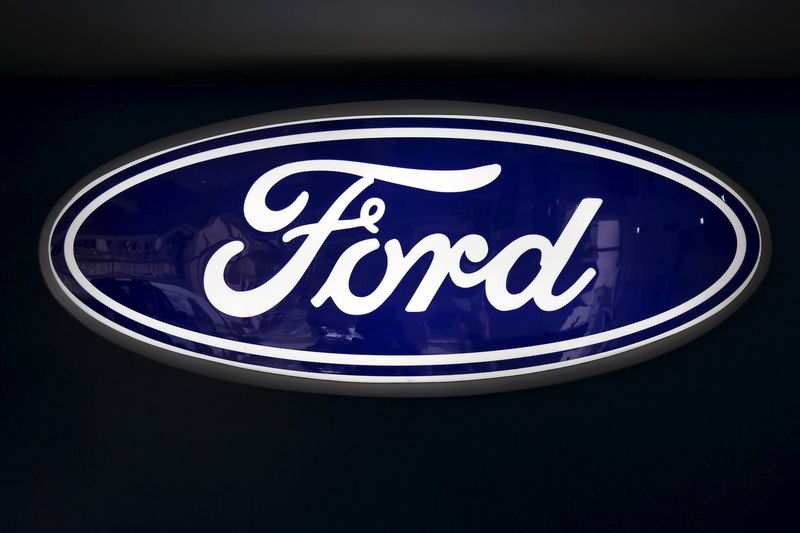This post was originally published on this site
https://i-invdn-com.investing.com/trkd-images/LYNXMPEJ1E0NJ_L.jpg
(Reuters) -Ford Motor Co has identified measures to secure 8% margins on its next-generation electric vehicles due at mid-decade, but could take years to close an overall cost disadvantage of up to $8 billion against competitors, executives said on Wednesday.
Ford can save up to $2.5 billion this year through better management of production schedules and a drop in commodity prices, the company’s chief financial officer, John Lawler, said at an auto conference.
Longer term, the company aims to reduce dealer inventories and drive more transactions online, among other measures, according to Chief Executive Jim Farley.
Ford shares were down 2.5% in late morning trading.
The company has “locked down” the designs of its new electric trucks and SUVs and aims to lower battery cell costs to less than $70 per kilowatt-hour as it phases in cheaper lithium iron phosphate chemistry, Farley said.
The automaker posted dismal quarterly results earlier this month and blamed chip shortages, supply chain disruptions and production “instabilities” for adding to its costs.
Lawler has said Ford faces $5 billion in higher costs this year and that the company will be “very aggressive” in reducing expenses in its manufacturing, supply chain and distribution operations.
In order to boost profitability on its second-generation EVs, Farley said Ford plans to shift to large underbody castings to reduce parts count and simplify manufacturing – a process pioneered by global EV leader Tesla (NASDAQ:TSLA) Inc.
Other gains will be made by introducing more efficient battery chemistries and reducing pack sizes, while shifting to more aerodynamic vehicle designs, the executives said.
Making an EV more aerodynamic can save “thousands of dollars in battery costs,” Farley said. “Why do you think we are doing Formula One? Because they have the best aero people in the world.”
He said Ford is still fighting entrenched mindsets in design and engineering – one of the reasons he created a separate organization, Ford Model e, to oversee development, manufacturing and distribution of the automaker’s future electric vehicles.
“We have a bracket group,” Farley said. “We have hundreds of engineers who make brackets. If you want to make 8% margins in EVs … There’s no bracket group.”

